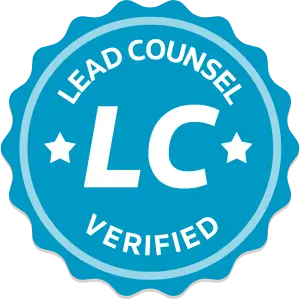




Elevators are an essential part of modern-day living and can be found in almost every commercial and residential building. However, elevator malfunctions can be a major safety concern, and the injuries resulting from such incidents can be severe. Our experienced injury lawyers have seen many cases of elevator malfunctions that have resulted in serious injuries to innocent victims. In this article, we will explore the different types of elevator malfunctions, their causes, and the legal recourse available to victims.
Types of Elevator Malfunctions
Elevator malfunctions can take many forms and can occur due to various reasons. Some of the most common types of elevator malfunctions are:
- Free-Fall Accidents: These accidents occur when the elevator suddenly drops from a significant height. Free-fall accidents can be caused by mechanical failure, cable breakage, or a power outage.
- Door Malfunctions: The doors of an elevator can malfunction in many ways, such as failing to close properly, getting stuck, or closing too quickly. Door malfunctions can cause serious injuries to passengers, such as crushing or limb amputations.
- Elevator Stoppages: Stoppages occur when an elevator gets stuck between floors or fails to stop at the designated floor. This can be caused by a malfunctioning sensor, faulty wiring, or an electrical failure.
- Overloading: Overloading occurs when an elevator is carrying more weight than it can handle. This can cause the elevator to malfunction or even collapse.
Causes of Elevator Malfunctions
Elevator malfunctions can occur due to various reasons, including:
- Poor Maintenance: Lack of regular maintenance and inspections can cause mechanical failures, which can lead to elevator malfunctions.
- Defective Parts: If any part of the elevator is defective or not functioning correctly, it can cause an elevator malfunction.
- Electrical Issues: Electrical issues, such as power surges, can cause elevator malfunctions, especially in older buildings.
- Design Defects: If the elevator was not designed correctly, it can lead to malfunctions and accidents.
Legal Recourse Available to Victims
If you have been injured in an elevator malfunction, you may be entitled to compensation for your injuries. To establish liability, it is essential to determine the cause of the malfunction. Liability can fall on the property owner, the elevator maintenance company, or the manufacturer of the elevator.
If the elevator malfunction was due to poor maintenance, the property owner may be liable. If a defective part caused the malfunction, the elevator maintenance company or manufacturer may be liable. In some cases, multiple parties may share liability.
Elevator accidents can result in serious injuries, such as broken bones, spinal cord injuries, traumatic brain injuries, and even fatalities. Our injury attorneys have successfully represented clients in a wide range of elevator injury cases, including but not limited to:
- Elevator malfunctions
- Falls down elevator shafts
- Elevator doors closing on individuals
- Sudden stops or drops
- Tripping hazards in or near elevators
To pursue a personal injury claim, you must establish that the elevator malfunction caused your injuries and that the responsible party was negligent in their duty to maintain the elevator. It is essential to gather evidence, such as eyewitness accounts, elevator maintenance records, and inspection reports, to support your claim.
Elevator malfunctions can cause severe injuries, and victims are entitled to compensation for their damages. If you or a loved one has been injured due to an elevator malfunction, it is essential to seek legal representation from an experienced personal injury attorney. We have the knowledge and expertise to help you navigate the legal system and get the compensation you deserve. Contact us today for a free consultation.

